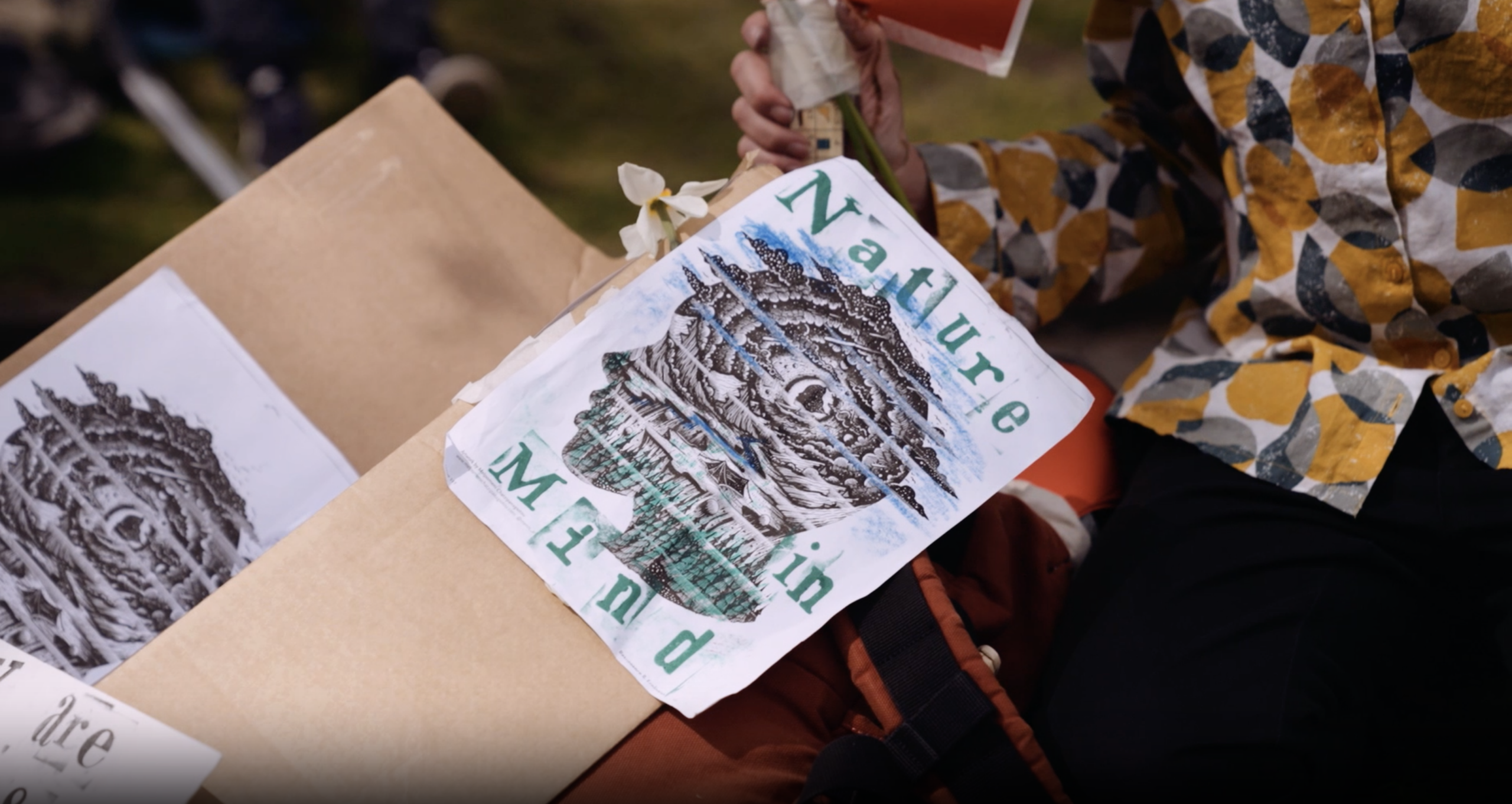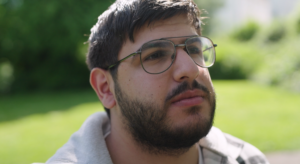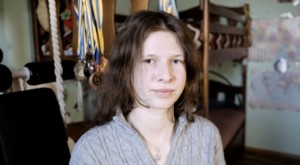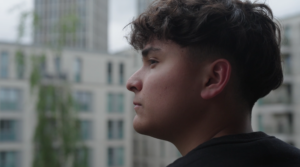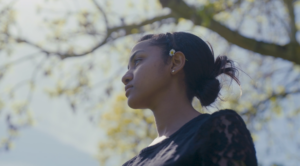Grmalem, a 25-year-old from Eritrea, recounts his harrowing journey of escape from compulsory military service and economic hardship. Leaving his homeland at 14, he embarked on a perilous five-month odyssey through Ethiopia, Sudan, Libya, Italy, France, and finally to the UK. Facing inhumane conditions from smugglers in the Sahara to a treacherous sea voyage, Grmalem eventually found refuge in the UK, where he lived in foster care, discovering his passion for art and education. Despite ongoing challenges and discrimination, Grmalem dedicates himself to supporting others and raising awareness about the refugee experience, hoping for a future where empathy and humanity prevail.
Transcript
Refugee Stories: Grmalem
Grmalem: My name is Grmalem. I'm 25. I'm from Eritrea. The reason I had to leave Eritrea is mainly politically economic and education. I was turning about 14, and I knew I'm gonna have to face this same story as my uncles, my dad and my sisters and all the village who has to join the military army. My dad did not have any income or salary from the government, and his whole life was serving the government. And that was not something I was planning to do for my future. And the only thing was like to run and escape the country. So this many reasons is that I have to live and change my family's future and change my future. One day I just said I'm leaving. I don't told anybody I can't because it's risky. I had to leave at night with one friend and we don't even know where we go. We don't have any torch. We don't have any lights, you know. I wasn't scared, I wasn't I wasn't scared. I was like, no, let's do it, let's, let's. It's because it's more scared. What I left is, uh. I prefer to die. My story. My journey takes five months. Stepping in my journey from Eritrea to Ethiopia, from Ethiopia to Sudan, from Sudan to Libya, from Libya to Italy, from Italy to France, from France to here. Every step I take was really, really hard and difficult. In the Sahara Desert, there were smugglers. They were kept us like really unhuman, holding guns like they ready for a war, feeding us as an animal as well. So all our life was theirs. We only give them the breath and they, they, they control the body.
I don't know how many days and nights were spent on the sea, but we spent more than a week. And the sea doesn't motivate you to survive. The sea never ever motivated. Really hard memories I have is people shouting from underground of the boat, vomiting as well, like people. So much vomiting. And just because so many, all the dead seaweed and fish and everything is so disgusting. I saw people come in to us in very small boat. They moved us to a bigger ship. Very, very, very, very, very big. It's like towns. It's bigger than any town I ever seen. Now. In Calais. There was a camp and people were there like for two and a half years and three years trying to go to England. We tried days and nights. I tried in every way of the lorry. I tried in everywhere of the car and we get fined every time we get tried everywhere. We fined by police. Police dog, uh, by scanned and oh, in Calais, the worst thing was the spray they spray in your eyes. And it was more than a gun surely. It was really hurt. This is where the point, I said. You call me illegal? I am legal because there is no legal rights. So I have to figure out my own legal because there were no other options, that is. But a day came. The minute came. The hours came. My I was scared. A lorry was stopped next to where I was lying in the grass. I was like, okay, let's try in this place again.
So I have to climb to the top of the lorry. I climbed there and tied myself really tiny and get to the UK. Junction 11, Folkestone to Ashford. He parked there. That 14 years I've been living not existed. Sorry. My best days start counting from the day of landing in the UK. I feel safe. I said. This is it. And later on. The police find me. I don't know where. And they took me to the police station and they took me to there. I think now it's called a transfer scheme. They took me to put me in the system like a refugee system. I lived in foster care for seven years with my foster carer. My super, super, super hero. And they foster in me how to be human. And they taught me that everything. What is I have now and who I am going to be. My foster carer, we couldn't communicate it. She came really wisely, said, can you please start telling me story how you came. And she gave me a pencil and a paper. And then I start drawing. Instead of writing. My first drawing was the boat, our boat and the small boat. They came in to risk us. It was that and she was like, wow, I saw that in the TV. She was saying, he came this way. And that's our first conversation with my foster mum. And since then she started buying me a canvas. Precious. All these stores, all the stores fill up. And I say to myself, I'm. I'm gonna be sure I make her proud to finish university and get graduated in art. And which is, I'm in my third year to graduate this year. So I love them and I see the love they gave me. And they are my parents and I call them mum and dad. The word refugee mean to me. It feels like illegal. It feels like. Not human.
It feels like separation. I do feel discrimination when people call me illegal refugee, come illegal asylum. I mean, when people called. You here and we can't find council house and they thinking we are taking their houses. That is when I feel really discrimination and it just doesn't make sense. It doesn't make me anything but me. Trying to help, trying to work, trying to do my best I can with supporting my family, with supporting others next to me. I wish and hope I can help people. I've been doing two years supplying teacher, helping the next generations to support in school, and I'm also working as a youth ambassador at KRAN. I joined KRAN to help young people, which I love to help people. When I am around people and we raise awareness of the young people, we go to school, talk about us, our journey, talk about our experience and expectation. I'm not leaving people who stop leaving their countries. Or maybe a war is going to stop forever, so people will live and I will support. And that is my hope. That's my wish to support, to be a human, to have empathy, to work hard until the day I die.





